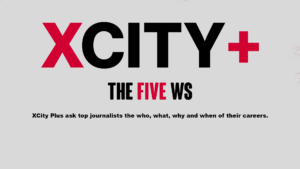Image: Unsplash
Jane Martinson, City’s Majorie Deane Professor of Financial Journalism, has been shortlisted for Journalist of the Year at the Wincott Awards 2020.
The awards recognise outstanding achievement in the fields of business, economic and financial journalism in the UK. Professor Martinson has previously judged the awards but stepped down from the judges panel this year after being nominated for her Tortoise long-read Barclay v Barclay.
Prof Martinson said she was “really, really chuffed” by the nomination.
She was placed in the ‘Journalist of the Year’ category alongside media teams such as the Financial Times for exposing the Wirecard scandal, The Economist’s big tech “dust up” cover story, and The Times’ journalist Patrick Hosking.
“I’ve been involved in the Wincott Awards for a few years,” she said. “I know the sort of standard and the quality of this particular award is so high. It’s an impressive gang to be in.”
Prof Martinson’s piece for Tortoise investigated the Barclay brothers’ “family feuds, financial strain and expensive folly”, culminating recently in a legal claim of bugging within the family.

Prof Martinson said it was “nerve-wracking” to go through with the piece. “They [the Barclay brothers] have got this huge, complicated, really interesting business that came from nothing. They built this empire, they were knighted by Thatcher. So all those things are ‘tick, tick, tick’ for journalistic interest. And yet nobody writes that because they’re intensely private.
“So it was fascinating to try and get a sense of what they were doing, and how their business works.”
This year’s ceremony, held remotely on May 20, received a record 156 entries. Previous years’ winners have included Sky News and The Times’s Ed Conway and The Financial Times’s Sarah O’Connor.
Prof Martinson’s nomination comes after she also made the shortlist for business, finance and economics journalist of the year at the British Journalism Awards.
David Taylor, editor at Tortoise media and Prof Martinson’s editor on the Barclay brothers investigation, said: “It’s pretty rare to work with a reporter who has business nous, [understands] the media landscape, and is willing to put in the shoe leather reporting hours too. So it was a joy to work with Jane on this.”
“She had got closer than any reporter to an understanding of the unaccountable media tycoons right at their moment of maximum power”
He added: “When the story emerged, just after the bugging of the conservatory at The Ritz, Jane’s peers all acknowledged that she had got closer than any reporter to an understanding of the unaccountable media tycoons right at their moment of maximum power.”
Prof Martinson hopes her work for Tortoise will encourage journalists to engage with financial stories. “I think what this shows is people can be quite scared of what they call financial journalism”, she said. “And I completely disagree. Not being scared of the numbers, trying to recognise that that is where the best stories are, is at the heart of why it is great to become a financial journalist.”
















